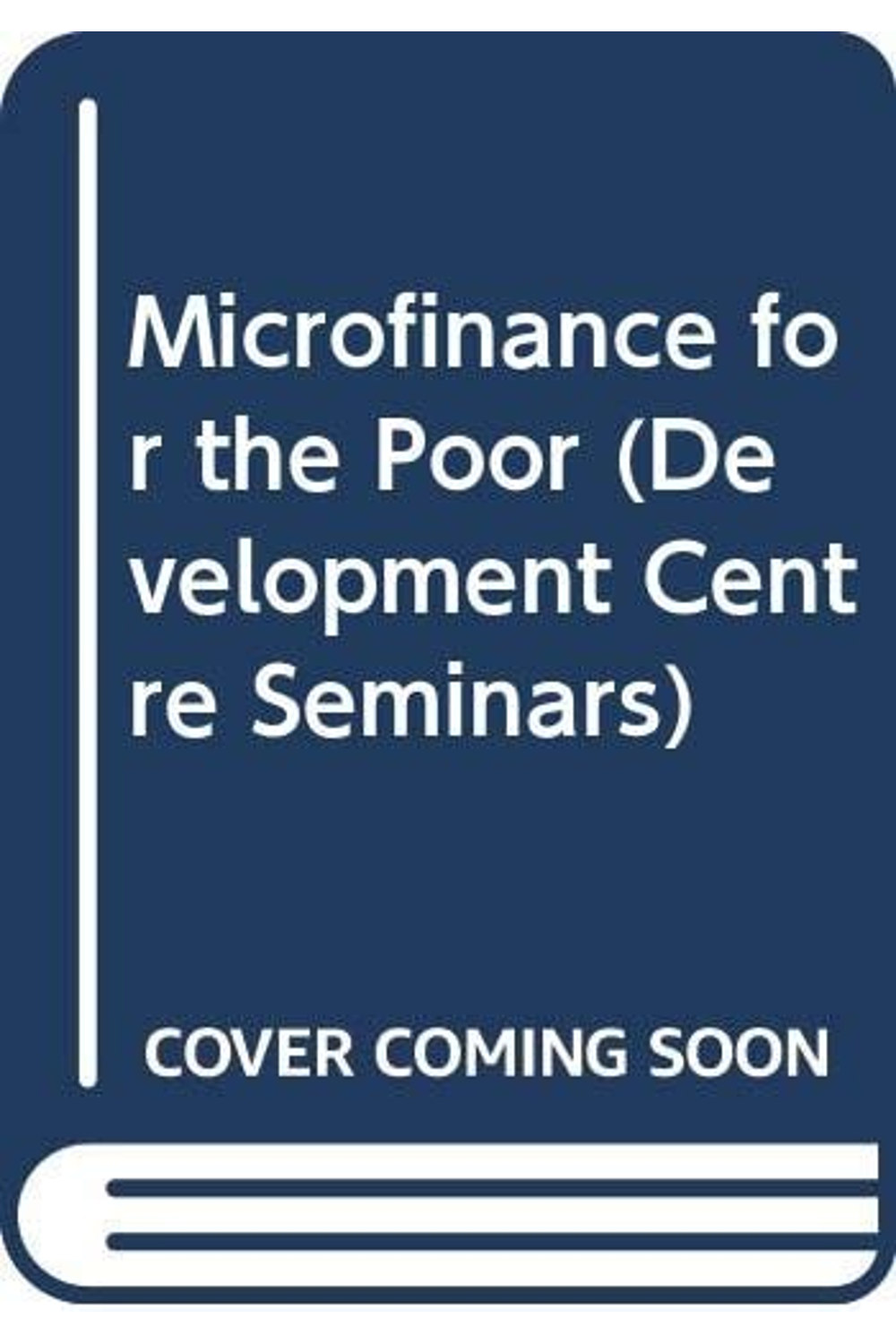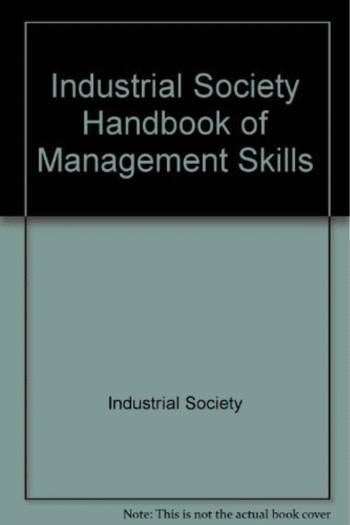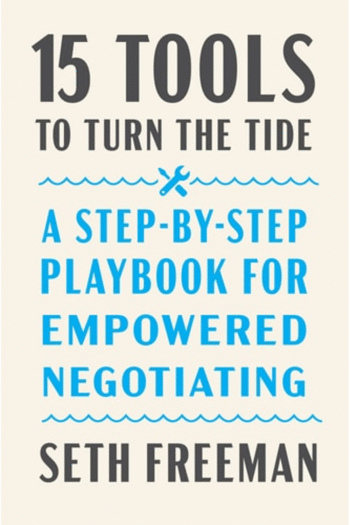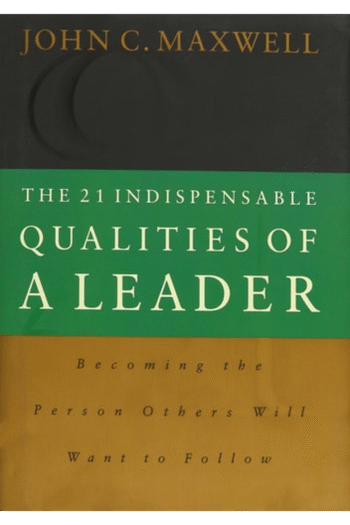Unlock the potential of microfinance with “Microfinance for the Poor” from the OECD Development Centre. This influential book, published in 1997, delivers a balanced and insightful analysis of microfinance strategies aimed at empowering underserved communities and fostering economic growth. Avoiding a one-size-fits-all approach, the OECDs research offers practical guidance for financial institutions and policymakers navigating the complexities of poverty alleviation. Explore proven models for sustainable outreach, learn to reconcile social impact with financial viability, and understand the crucial role of responsible regulation in this sector. Perfect for students, practitioners, and anyone seeking a deeper understanding of inclusive finance, this book offers crucial insights into building a more equitable global economy. ISBN: 9789264154155.
Microfinance for the Poor
13,15 $
In stock
Description
Drawing on a wide base of experience and new data, this book offers a comprehensive and balanced analysis of major issues and approaches in microfinance aiming at the poor. It guards against promoting a single model of microfinance and burdening financial services with unrealistic expectations for poverty alleviation while also offering guidance for reconciling outreach and sustainability of financial institutions serving ever growing numbers of the poor.
Uncover the transformative potential of Microfinance for the Poor, a seminal work by the Organisation for Economic Co-operation and Development (OECD) Development Centre. This insightful paperback, published in 1997, delves into the critical role of microfinance in alleviating poverty and fostering economic empowerment among underserved populations. More than just a theoretical exploration, "Microfinance for the Poor" is a comprehensive and balanced analysis grounded in extensive research and real-world experience. The OECD Development Centre, renowned for its rigorous analysis and policy recommendations, brings its expertise to bear on the complex landscape of microfinance. The book carefully examines the various models and approaches to microfinance, acknowledging that there is no one-size-fits-all solution. It avoids the pitfall of promoting a single, idealized model, instead offering a nuanced perspective that considers the diverse needs and contexts of impoverished communities. This book serves as a crucial guide for policymakers, development practitioners, and financial institutions involved in microfinance. It offers practical guidance on how to reconcile the often-competing goals of outreach and sustainability. The central challenge lies in expanding access to financial services for ever-growing numbers of the poor while ensuring the long-term viability of the institutions that serve them. "Microfinance for the Poor" provides valuable insights on how to achieve this delicate balance. Within its 208 pages, the book addresses the major issues surrounding microfinance, including: * **The Impact of Microfinance on Poverty Reduction:** Examining the evidence on the effectiveness of microfinance in improving the lives of the poor. * **Best Practices in Microfinance:** Identifying the key principles and practices that contribute to the success of microfinance programs. * **The Role of Regulation and Supervision:** Discussing the importance of appropriate regulation and supervision in ensuring the stability and integrity of the microfinance sector. * **The Challenges of Scaling Up Microfinance:** Exploring the challenges of expanding microfinance services to reach a wider population. * **Balancing Social Impact and Financial Viability:** Providing practical strategies for achieving both social and financial goals. While cautioning against overburdening microfinance with unrealistic expectations for poverty alleviation, "Microfinance for the Poor" underscores its significant potential as a tool for economic empowerment. This book is an essential resource for anyone seeking a deeper understanding of the challenges and opportunities in microfinance, and for those working to build a more inclusive and equitable financial system for all. It emphasizes sustainability and real results while avoiding the idealistic, sometimes misleading portrayal of microfinance as a singular cure for poverty. Instead, it offers pragmatic guidance for building robust and effective programs, a perspective highly sought after by those involved in development economics and banking for the poor. Whether you're a seasoned professional in the field or a student just beginning to explore the world of microfinance, this book will provide you with a solid foundation for understanding the key issues and challenges. Don't miss out on this opportunity to gain valuable insights from one of the world's leading development organizations.
Additional information
| Authors | Organisation for Economic Co-operation and Development. Development Centre |
|---|---|
| Binding | |
| Condition | |
| ISBN-10 | 9264154159 |
| ISBN-13 | 9789264154155 |
| Language | |
| Pages | 208 |
| Publisher | |
| Year published | |
| Weight | 512 |
SKU: G-9789264154155-3
Categories: Banks & Banking, Business & Money, Economics
- Additional information
- Currencies
- USD – United States dollar
- EUR – Euro
- GBP – Pound sterling
- CNY – Chinese yuan
- BRL – Brazilian real
- MXN – Mexican peso
- JPY – Japanese yen
- PHP – Philippine peso
- THB – Thai baht
- PLN – Polish złoty
- CAD – Canadian dollar
- MYR – Malaysian ringgit
- AUD – Australian dollar
- TWD – New Taiwan dollar
- CZK – Czech koruna
- SEK – Swedish krona
- HUF – Hungarian forint
- ILS – Israeli new shekel
- CHF – Swiss franc
- HKD – Hong Kong dollar
- DKK – Danish krone
- SGD – Singapore dollar
- NOK – Norwegian krone
- NZD – New Zealand dollar





